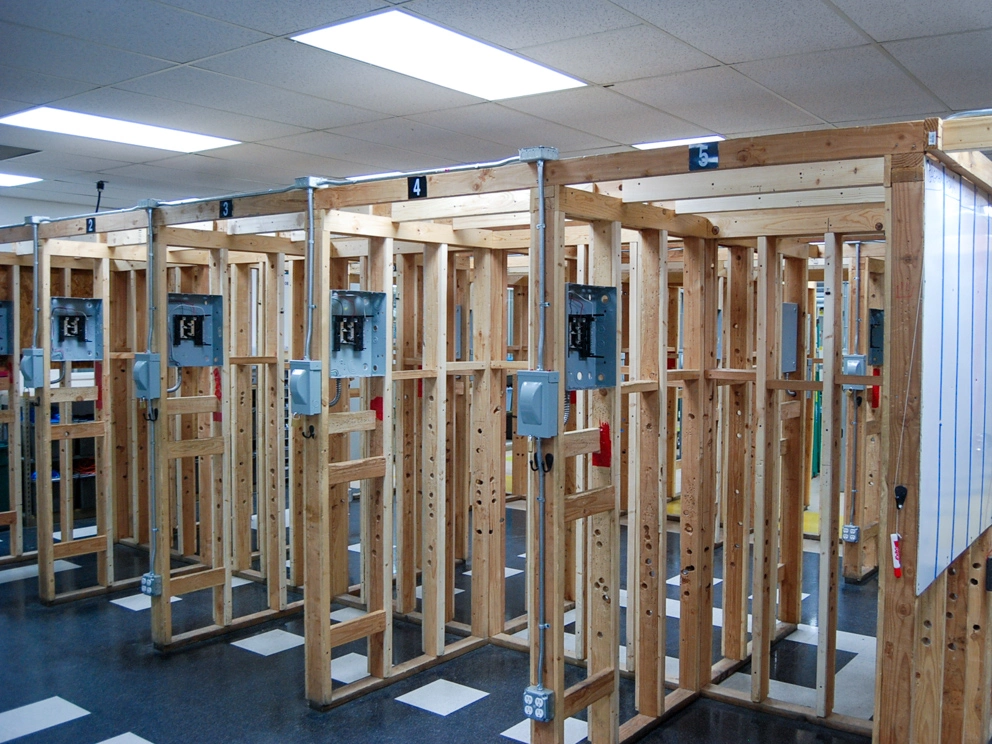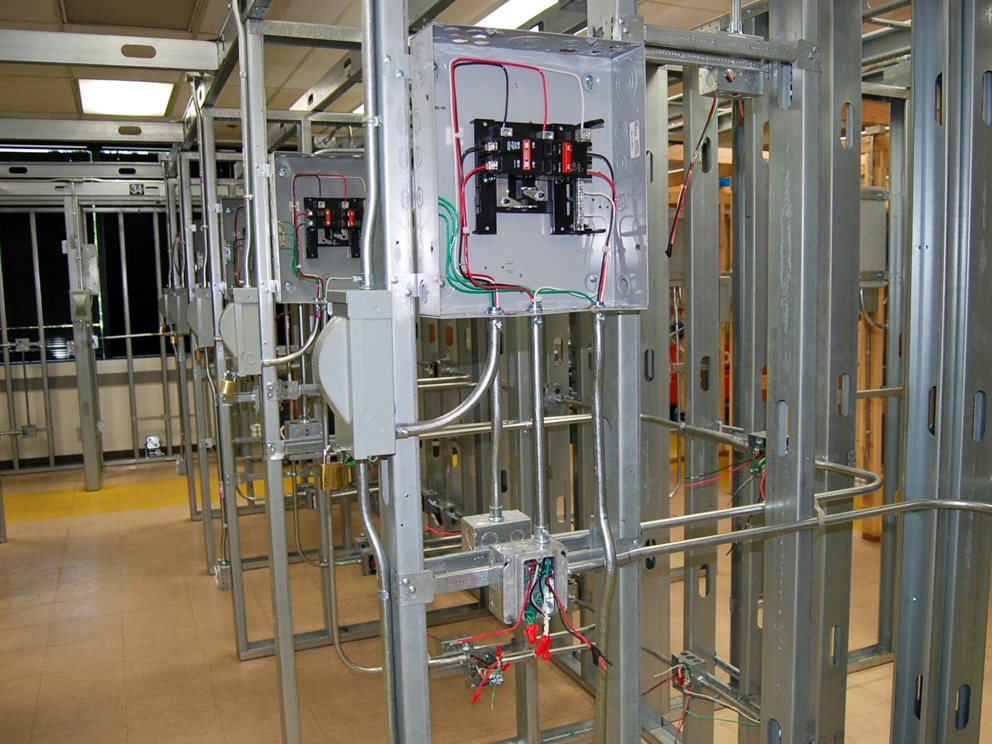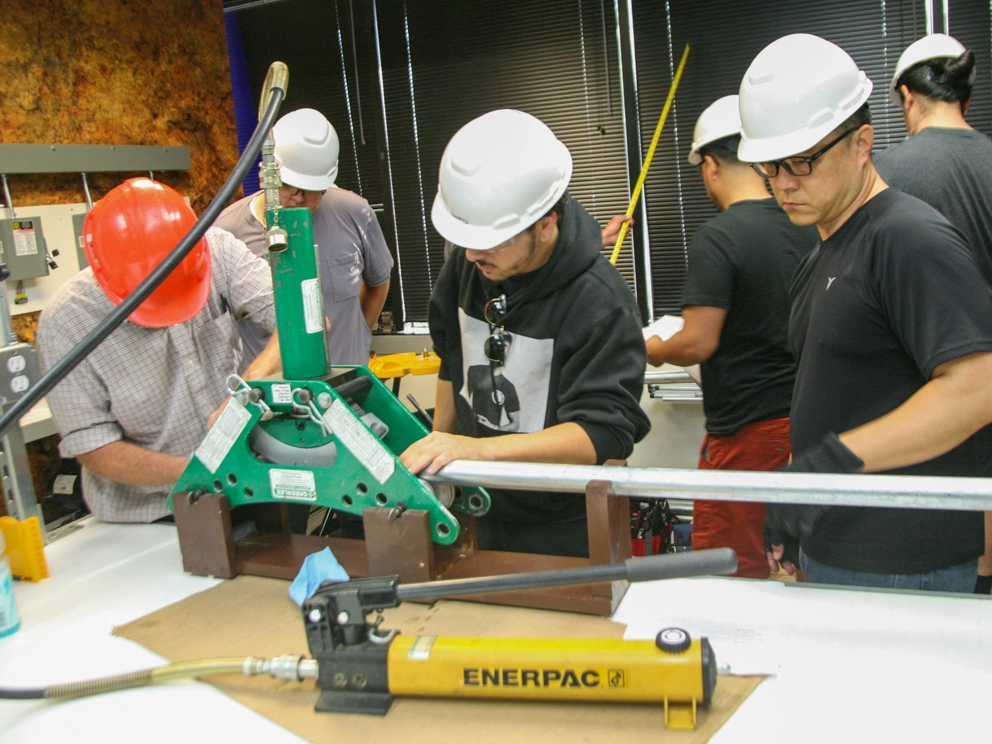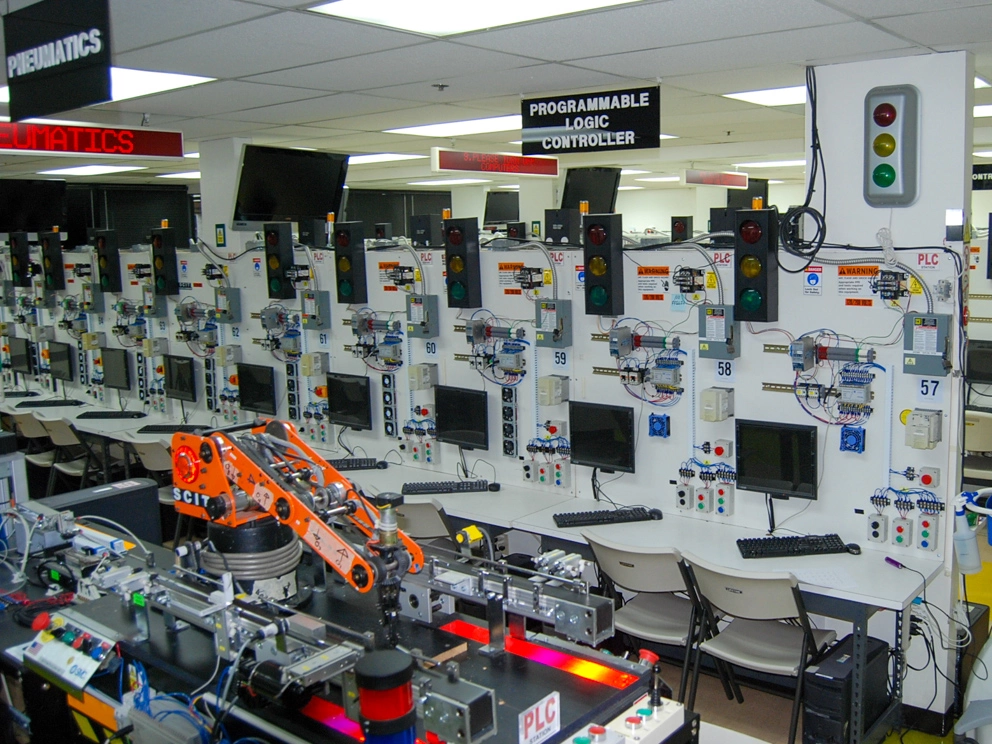Electrician Program
Training for all three electrical sectors:
Residential, Commercial and Industrial.
-
8 Month Program with 5 Week Starts
-
Accredited & CA DIR Approved
-
Obtain ET Card to Work in Field
-
Campus & Online Options







Request More Info
Submit form for more program information.
We Respect Your Privacy
Requests for information are sent directly to SCIT's Admissions Office. Your information is not and will not be provided to any third parties.
- CALL TO LEARN MORE: 714-300-0300
- SEND AN EMAIL: admissions@scitech.edu
Financial Aid available to those who qualify
SCIT is approved to participate in veterans education benefits programs
GENERAL ELECTRICIAN
Program Overview
The General Electrician program is an accelerated, 8 month hands-on program designed for students to learn electrical installation and troubleshooting for three broad sectors: Residential, Commercial and Industrial. The program is approved by the California Department of Industrial Relations for the whole general electrician curriculum with the goal to prepare students for a variety of entry level positions in all 3 electrical sectors.
The program is offered either residentially or fully online. Students who take the program residentially complete lab projects in SCIT’s extensive lab facilities located in Anaheim, CA, including the Residential Wiring Lab, Commercial Wiring Lab, Electric Motors Lab and the Programmable Logic Controllers (PLC) Lab. Students who choose to take the program fully online are shipped trainers containing all the equipment necessary to perform lab projects with online faculty guidance in the convenience of their home.
TRAIN FOR ALL 3 ELECTRICAL SECTORS

LEARN BY DOING
Hands-On Lab Projects
Students who choose to complete the program through residential training work in a variety of SCIT’s Lab Facilities to gain the practical hands-on experience to enter the workforce.
All images below are from SCIT's Labs

Students installing electrical panels.

Students working as a team to wire a section of a mock home.

Student bending conduit to run wiring.

Student programming a traffic light simulation on a PLC.

Students installing wiring for a motor control project.

Students performing large conduit bending projects for industrial applications.

Students installing solar panels and connecting them to an inverter.

Electrical Wiring Lab

Commercial Wiring Lab

Code Special Topics Lab

Electric Motors Lab

Programmable Logic Controllers (PLC) Lab
PROGRAM CURRICULUM
Course Topics
Click on the course topics below to learn more.
Students learn about basic electrical theory and electronic circuits. Topics include: AC/DC concepts, circuit elements and analysis, semiconductor electronic concepts, digital electronic concepts, op-amps, and more. Students work on multiple electronic projects that reinforce concepts learned in the classroom.
Students learn how to wire switches, receptacles (e.g. outlets you plug things into), light fixtures, panels, and more. Additionally, students are introduced to conduit bending with electrical metallic tubing (EMT), which is the metal that encases electrical wiring; students learn about ninety degree bends, saddle bends and kicks.
Students learn to install large conduit and cabling in metal framed environments in addition to electrical components that are more common in commercial settings, such as fluorescent lighting fixtures. Commercial wiring is similar to residential wiring, but it is often on a much larger scale to meet commercial needs. Instead of a home, imagine the electrical wiring and components necessary for steel high-rise structures that require working with higher voltages and amperage.
Students are introduced to special electrical topics such as renewable energy installation (e.g. solar panels and wind turbine installation), low voltage electrical installations (e.g. data cabling), alarm/fire system installation, and other topics related to the field.
Students learn electric motor installation and control techniques by completing multiple lab projects involving DC and AC motors. Electric motors play a vital role in many applications, including manufacturing lines, factories and elevator systems. There are various types of electric motors and control mechanisms to ensure proper operation of electric motors.
Programmable logic controllers (PLC's) are popular programmable instruments used to orchestrate a process involving electrical or electromechanical inputs and outputs. For example, one application of a PLC is traffic light control; a traffic light is normally controlled by a PLC whereby the inputs to the PLC device are the induction coils installed in the pavement at the intersections and the outputs are the traffic lights themselves. A program is uploaded into the PLC (usually a “ladder logic” based program) that carries out instructions based on the inputs feeding the PLC device.
Students train to program Allen Bradley PLC units for various real-world simulations and applications. Examples of PLC applications include traffic light control, elevator control, manufacturing line control, and much more.

B.S. Electrical Engineering Degree Opportunities
SCIT is an accredited, degree granting institution. Students may have the opportunity to continue their education toward a degree to open further career opportunities.
Start by completing the General Electrician program and find entry level employment in the electrical field. Work in the field while pursuing a B.S. Electrical Engineering degree in the evenings. At the end you will have a diploma, a degree and work experience.
An Electrical Engineering bachelor’s degree may also reduce the amount of work experience that the State of California requires for those wanting to take the C-10 Electrical Contractor Licensing Test.

Degree Topics Include: Digital Electronics, Semiconductors and Circuits, Programming, MATLAB, Signal Analysis, Computer Aided Drafting (CAD), 3D Modeling with SolidWorks, Embedded Systems, Robotic Engineering, Control Systems, Electric Machines, Power Systems, Power Distribution, Power Protection, Senior Capstone Project and much more.

About SCIT
SCIT was founded over 35 years ago by a team of engineers and educators in Anaheim, CA with a vision to build an institution that prides itself on providing quality technical education. With a single campus location, SCIT's over 15,000 graduates work in a variety of companies based in California and throughout the nation.
ACCREDITATION: SCIT is accredited by the Accrediting Commission of Career Schools and Colleges (ACCSC).
BPPE: Southern California Institute of Technology is a private institution approved to operate in the State of California by the Bureau for Private Postsecondary Education. Approval to operate means being in compliance with state standards as set forth in the CEC and 5, CRC. For more information, contact the Bureau for Private Postsecondary Education at 1747 North Market Blvd., Suite 225, Sacramento, CA 95833, www.bppe.ca.gov, toll-free telephone number (888) 370-7589 or by fax (916) 263-1897.
VA: SCIT is approved to participate in veterans education benefits programs under Title 38 of the GI Bill® for eligible veteran students. GI Bill® is a registered trademark of the U.S. Department of Veterans Affairs (VA). More information about education benefits offered by VA is available at the official U.S. government website at http://www.benefits.va.gov/gibill.
DOE: SCIT is an eligible institution participating in federal financial aid programs. Financial aid is available to those who qualify. The U.S. Department of Education has approved Southern California Institute of Technology for participation in the following programs: Federal Pell Grant, Federal Supplemental Education Opportunity Grant (FSEOG), Federal Direct Subsidized Loans, Federal Direct Unsubsidized Loans, Federal Parent Loans to Undergraduate Students (PLUS), and Federal Work Study (FWS).
DIR: SCIT is approved by the California Department of Industrial Relations, Division of Apprenticeship Standards to offer the Whole General Electrician Curriculum (Approved School #145).
WIOA: SCIT is approved for WIOA training benefits from various Workforce Investment Boards.
DHS: SCIT is approved to issue I-20's to admit foreign students.
